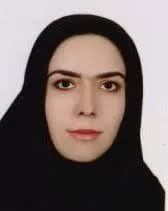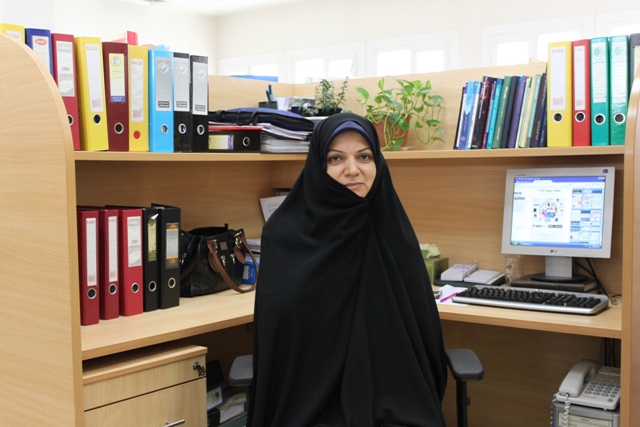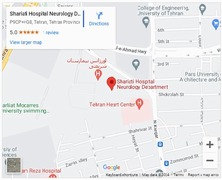Latest content
- 1404/04/07 Association between serum hemoglobin level and bone mineral density in adults: Iranian multi-center osteoporosis study (IMOS)
- 1404/04/07 Predictors of biochemical and structural response to medical therapy in patients with active acromegaly following surgery: a real-world perspective
- 1404/04/07 Continued rise in the incidence of thyroid cancer in Iran: true increase or overdiagnosis
- 1403/10/20 program 5th Convergence Congress in Endocrinology
- 1403/10/12 The effect of Nurse-led Care implementation on Quality of Care & remove of diabetic foot ulcer and explain patients’ experiences A Mixed Method study
- 1403/10/05 Ovarian volume, not follicle count, is independently associated with androgens in patients with polycystic ovary syndrome
- 1403/10/05 Multicentral health and care assessment of diabetic foot in patients with diabetes
Subsets of Endocrine and Metabolism Research Center
Medical ethics group
The Medical Ethics Research Group at the Endocrinology and Metabolism Research Institute, Tehran University of Medical Sciences, was established as an independent unit in 2002. This initiative was in line with the growing interest in medical ethics within the country and the increasing inclination of researchers and scientists towards bioethics and modern medical ethics. Recognizing the crucial role of ethical considerations in all aspects of healthcare, the group aims to:
• Promote ethical principles and guidelines in medical research and practice.
• Conduct research on ethical issues related to endocrinology and metabolism, including but not limited to:
o Informed consent
o Patient autonomy
o Confidentiality
o Justice and equity in healthcare access
o Ethical considerations in the use of new technologies (e.g., gene editing, artificial intelligence)
• Educate healthcare professionals, researchers, and the public on ethical issues in medicine.
• Collaborate with other institutions and organizations to advance the field of medical ethics in Iran.
The cultivation of ethical awareness in our country has a deep-rooted historical precedent. As evident from the records of Islamic and Iranian civilizations, renowned physicians such as Razi and Avicenna, pioneers in medical science, emphasized the importance of ethical conduct and professional responsibility in the practice of medicine. Building upon this rich tradition, the Medical Ethics Research Group strives to contribute to the ethical advancement of healthcare in Iran.
|
Dr. Bagher Larijani
Headship of the group
|
|
Dr. Farzaneh Zahedi
Head of medical ethics department
|
Microbiome Research Group
The mission of the Microbiome Research Group is to conduct large-scale, applied, and product-oriented research in the field of endocrine and metabolic diseases. The group prioritizes the development of standardized and localized operational guidelines in the field of the microbiome. Securing financial support from various institutions and entering into national and international cooperation agreements to provide the necessary infrastructure are among the other missions of this group. Leading major national projects to achieve a model of the Iranian microbiome in different age and gender groups, ethnicities, and geographical regions of the country is one of the goals of the Microbiome Research Group. We strive to utilize the knowledge gained in the field of the microbiome for therapeutic interventions.
The Microbiome Research Group aims to advance the understanding of the human microbiome and its intricate relationship with endocrine and metabolic diseases. Our research focuses on:
• Conducting high-quality, translational research to bridge the gap between basic science and clinical applications.
• Developing and validating novel methodologies for microbiome analysis, including high-throughput sequencing, metagenomics, and metabolomics.
• Characterizing the human microbiome in diverse Iranian populations, considering factors such as age, gender, ethnicity, geography, and lifestyle. This includes establishing a comprehensive database of the Iranian microbiome.
• Investigating the role of the microbiome in the pathogenesis of endocrine and metabolic disorders, such as obesity, type 2 diabetes, non-alcoholic fatty liver disease, and cardiovascular disease.
• Exploring the potential of microbiome-based therapies, including probiotics, prebiotics, fecal microbiota transplantation, and microbiome-modulating drugs.
• Developing and implementing standardized operating procedures for microbiome research to ensure data quality and reproducibility.
• Fostering national and international collaborations to advance the field of microbiome research and facilitate knowledge exchange.
• Disseminating research findings through high-impact publications and presentations at scientific conferences.
Members of the microbiota group
Dr. Bagher Larijani
|
|
Name and Surname: Seyed Davar Siadat
Position: Professor of Medical Bacteriology, Microbiology Research Center, Pasteur Institute
|
|
Assistant Professor of Medical Biotechnology
|
Traditional Medicine Research Group
In order to generate knowledge, find cheaper and less harmful treatments for a wide range of endocrine and metabolic diseases and related non-communicable diseases, and enhance innovations in drug products supported by scientific evidence, and ultimately take a step towards a resistance-based economy, the Endocrinology and Metabolism Research Institute has established the Research Group of Traditional Medicine in Endocrinology. Today, one of the major challenges of the health system is managing diseases, especially non-communicable diseases. The WHO's proposed solution is to use herbal medicines as rich, inexpensive, and readily available drug sources in each region. On the other hand, recent research using new technologies has led to significant achievements in the formulation and design of drug production aimed at reducing side effects and increasing efficacy.
The Traditional Medicine Research Group at the Endocrinology and Metabolism Research Institute aims to:
Investigate the therapeutic potential of traditional medicine in the management of endocrine and metabolic disorders, including but not limited to diabetes, obesity, thyroid disorders, and osteoporosis.
Conduct rigorous scientific research to evaluate the efficacy and safety of herbal remedies, traditional formulations, and complementary therapies. This includes utilizing modern scientific methodologies such as randomized controlled trials, clinical trials, and preclinical studies.
Develop evidence-based guidelines for the safe and effective use of traditional medicine in the management of endocrine and metabolic diseases.
Investigate the underlying mechanisms of action of traditional medicines through preclinical studies, including pharmacological, biochemical, and molecular studies.
Promote the integration of traditional medicine with conventional medicine to provide comprehensive and personalized care to patients.
Develop novel drug delivery systems and formulations based on traditional medicines to enhance their efficacy and safety.
Foster collaborations with researchers, clinicians, and traditional medicine practitioners to advance the field of traditional medicine research.•
Disseminate research findings through high-impact publications and presentations at scientific conferences
|
Dr.bagher-larijani Distinguished Professor of Endocrinology & Metabolism |
|
Associate Professor of Pharmacology (By Research)
|
Fasting Research Group
The Islamic Fasting Research Group started its work as an independent group in September 2010 at the Endocrinology and Metabolism Research Institute. The aim of establishing this group is to gather scientific information and conduct research to provide reliable scientific evidence on the effects of Ramadan fasting on various aspects of the physical and mental health of both healthy individuals and those with various diseases. In this way, the level of awareness of the scientific community and the general public can be increased to make appropriate decisions regarding fasting. Since there have been few controlled studies on the effects of Islamic fasting in different conditions, it is hoped that the efforts of this group will be an effective step towards advancing the scientific goals of the country, especially in the scientific community of Muslim countries.
The Fasting Research Group utilizes a multidisciplinary approach, encompassing various fields such as endocrinology, metabolism, nutrition, psychology, and immunology, to comprehensively investigate the physiological and psychological effects of Ramadan fasting. Our research methodologies include controlled clinical trials, observational studies, and laboratory investigations to assess the impact of fasting on various parameters, including blood glucose levels, lipid profiles, insulin sensitivity, oxidative stress, inflammation, cognitive function, mood, and sleep quality.
The findings of our research are disseminated through peer-reviewed publications in reputable scientific journals, presentations at national and international conferences, and collaborations with other research institutions. We strive to translate our research findings into practical recommendations for healthcare professionals and the general public, promoting informed decision-making regarding fasting practices during Ramadan.
Diabetic Foot Research Group at the Endocrinology and Metabolism Research Institute, Tehran University of Medical Sciences
The Diabetic Foot Research Group at the Endocrinology and Metabolism Research Institute, Tehran University of Medical Sciences, is a leading group in research and treatment of diabetic foot ulcers in Iran. The group conducts extensive research, educational, and clinical activities aimed at improving knowledge and care for patients with diabetic foot ulcers.
Group Objectives:
Knowledge Enhancement: Elevating the awareness of medical professionals and patients regarding diabetic foot ulcers, their causes, prevention, and treatment methods.
Research: Conducting scientific research to discover new and effective strategies for preventing, early detecting, and treating diabetic foot ulcers.
Education: Organizing educational programs for physicians, nurses, and other healthcare personnel on diabetic foot care.
|
Dr.bagher-larijani Distinguished Professor of Endocrinology & Metabolism |
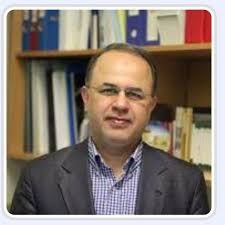 Dr.mohsen-khoshniat |

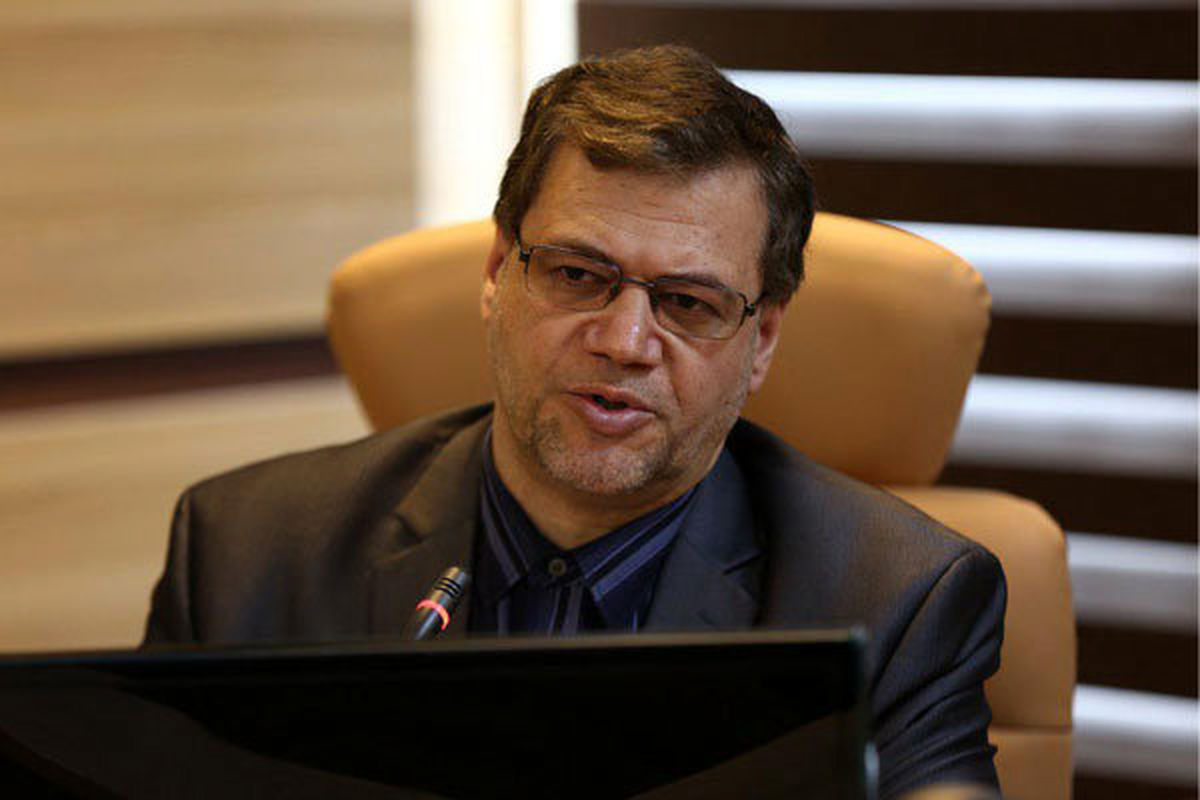
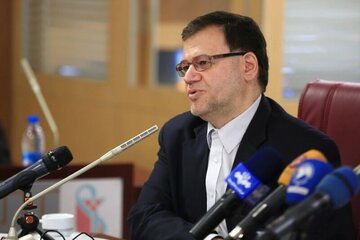
اتیفغت.jpg)
